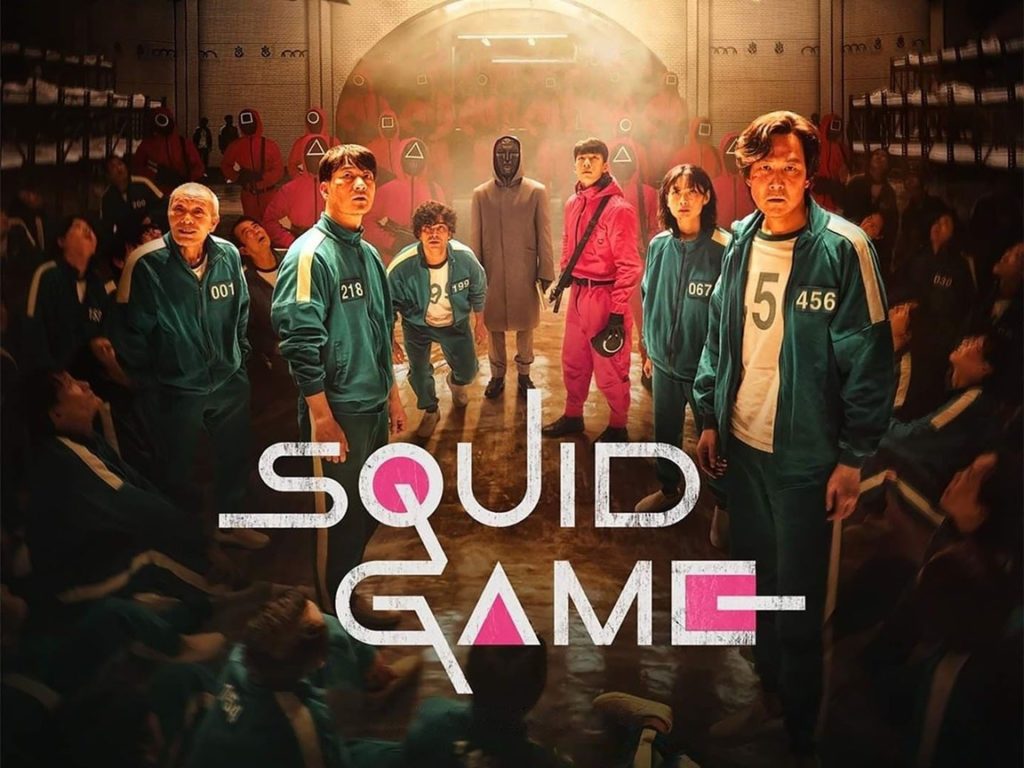“Squid Game”–Hunger Games Meets Snowpiercer: Gangnam Style

This #1 Netflix mega-hit, streaming in nine episodes, is a Korean dystopian story of survival. A mastermind known as the Front Man, in a mask like Darth Vader, stages a series of deadly childhood games (tug of war, red-light-green-light, and the Korean-specific squid game). The debt-ridden players, trapped on a remote island, are forced to compete in deadly versions of the gladiator-style games: gunned down if they lose. Guards with triangles, circles, or squares marked on their masks are anonymous.
Squid Game’s sometimes shocking–always bloody–drama of blood-letting scenes grimly captures desperate people degrading themselves for money and survival. We see the truly hopeless future of the participants as they struggle to win the games.
The competitors — an unemployed, divorced autoworker and gambler with a young daughter, a Pakistani refugee who has no means of financial support for his young wife and baby, a fraudulent investor who has sold his mother’s assets— are only a few of the hundreds of debtors, who are not necessarily victims of their circumstances. These distraught and miserable players see no other options except taking part in the kill-or-be-killed, increasingly vicious games designed by the autocratic Front Man. The potential payoff for the winner or winners is tens of millions of dollars hanging literally over the players’ heads in a glass chandelier globe.
A timely, — if over-the-top– critique of what happens when the powerless are at the mercy of the powerful. The series’ brutality and bloodfest give off a computer-game vibe, where the body count is grotesque but meaningless. This is what Squid Game drives home.
Unrelenting carnage is the show’s most conspicuous feature. Think “Pulp Fiction” (Quentin Tarrantino) which I couldn’t watch.
I don’t like gore, I don’t like horror movies, but I was begrudgingly captivated by Squid Game. It hooks in the voyeur’s curiosity: watching a car-accident, a boxing match, contact sports, “survival” tv, or gladiator-style competition.

In Squid Game the characters die in the order of their importance to the plot. The “game” tone–“this is not serious” vibe–is underscored by the cinematography (set-designs that look like animated Lego games) and cos-play costumes.
Definitely a niche-market with Korean originality a strong reason to watch.
Warning: Fear and anger can make people vindictive and abusive. The narrative relies on this behavior and its horrific consequences.

lenore gay
Once again, not interesting to me. Maybe the movie Dune will be a piece to write about. Can’t wait to see it. I’m told it’s an improvement on the dreadful first version.
What thoughts on the other thing we’re emailed about?
Best,
Lenore